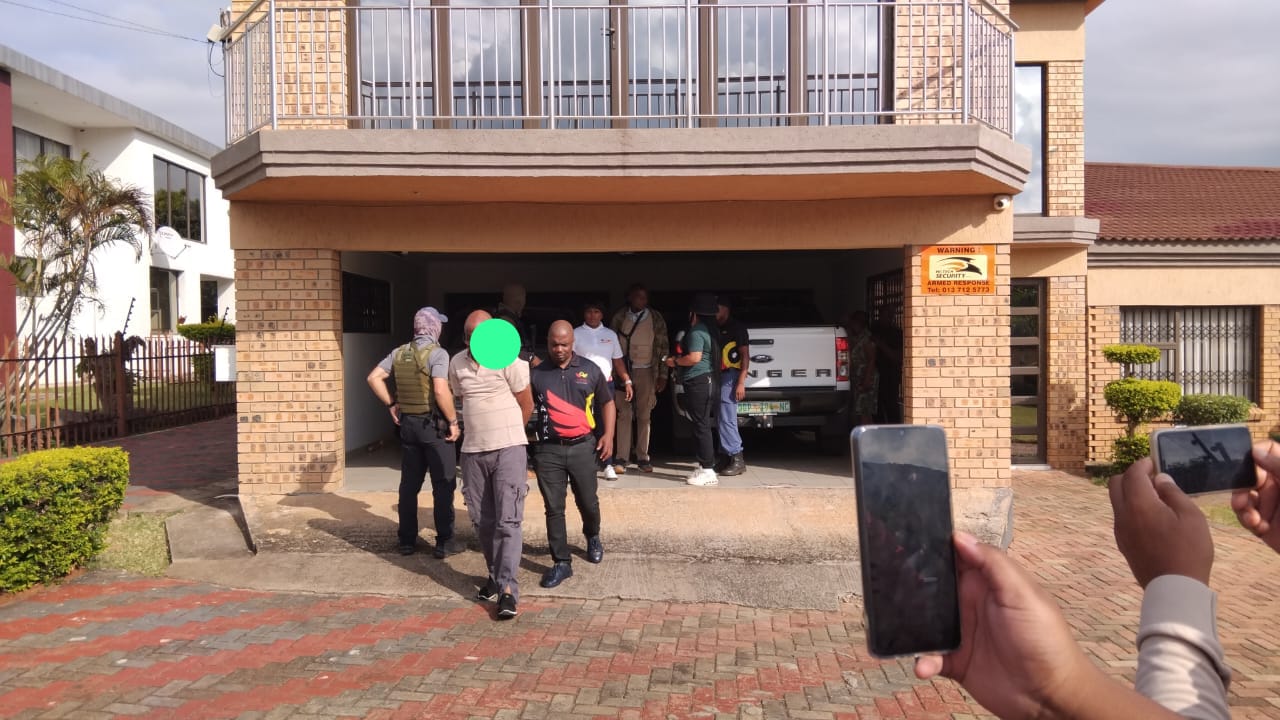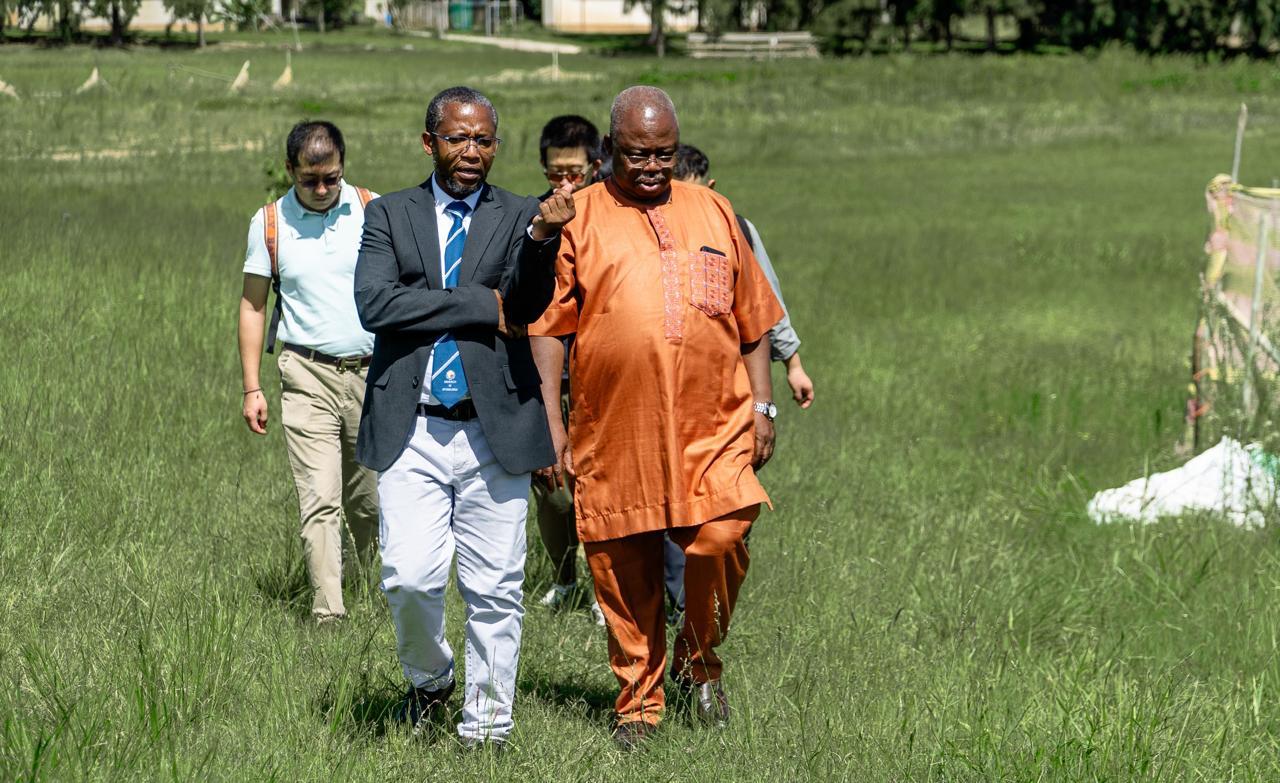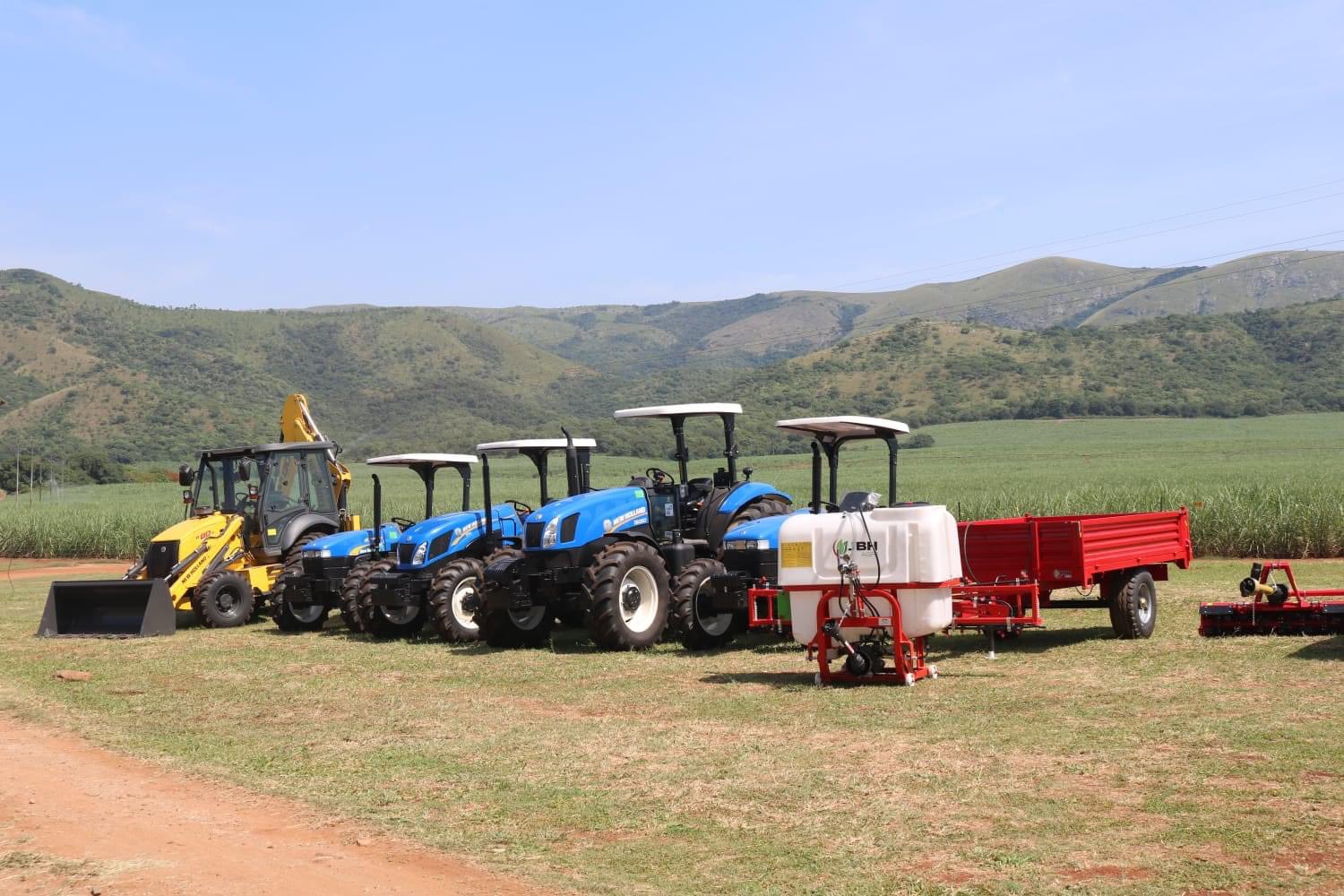-
 Hawks pounce on Mpumalanga government officials in another repairs and maintenance scandal
Hawks pounce on Mpumalanga government officials in another repairs and maintenance scandal
-
 Mulaudzi files R5bn claim against the state
Mulaudzi files R5bn claim against the state
-
 Evaluation Board reinstates disputed value on Rupert’s Mpumalanga property
Evaluation Board reinstates disputed value on Rupert’s Mpumalanga property
-
 Arqomanzi accused of delaying Lily Mine sale because it’s eyeing R141m profit from loan claim
Arqomanzi accused of delaying Lily Mine sale because it’s eyeing R141m profit from loan claim
-
 Matric cheating rocks Mpumalanga once again
Matric cheating rocks Mpumalanga once again
-
 Mvianga dismisses Royal Bafokeng’s response to his court application
Mvianga dismisses Royal Bafokeng’s response to his court application
-
 ANC denies ever raising funds from City of Matlosana
ANC denies ever raising funds from City of Matlosana
-
 ‘SA must boycott the World Cup’ – Malema
‘SA must boycott the World Cup’ – Malema
-
 Transnet loses third court battle and ordered to pay R60m to Gijima
Transnet loses third court battle and ordered to pay R60m to Gijima
-
 UMP’s ambition to position SA as a leading rice exporter
UMP’s ambition to position SA as a leading rice exporter
Government relegates landowners into children with amended law
Sizwe sama Yende
New changes in land reform legislation have done nothing but relegate beneficiaries into minors and second-class investors.
This has been the reaction of the South African Institute of Race Relations (IRR) to the Communal Property Association (CPA) Amendment Act signed by President Cyril Ramaphosa in October last year.
The IRR’s report authored by Gabriel Crouse recognises that CPAs, which are landholding entities for land reform beneficiaries, were dysfunctional as 2.5 million hectares in their hands were lying fallow, affecting productivity, jobs, food security, poverty alleviation and economic growth.
There are 1740 registered CPAs in the country but only 10.6 % are compliant – meaning that they can hold annual general meetings, submit audited financial statements and meet other requirements as determined by the Department of Rural Development and Land Reform.
A total number of 2 813 345 hectares have been transferred to CPAs since democracy.
However, the amendments in the Act, according to IRR, did not make things better.
LANDOWNERS DEPRIVED OF CONTROL
“Rather than embarking on a path to reform, the previous parliament and current president Cyril Ramaphosa have set the stage for the CPA systemwide failure to get even worse,” the report says.
The IRR says that the major flaws the Act are that:
· It deprives CPA landowners of control over their own property. It deprives them of the right to lease or sell their own land or property without first acquiring consent from a government official;
· The deprivation of control over their assets has radically transformed CPA owners into second-class investors, with a status equivalent to that of minors (children) who need adult consent to sell their immovable property held in their name.
“To be clear from the outset – it is typical for landowners to have to provide documentation to the state before concluding a deal pursuant to rules of sale for various major classes of assets,” says the report.
“However, CPA landowners must get consent for a different reason, as they now must show a government official that it is in their best interest to lease or sell their property to a particular buyer at a particular price.”
DIRECT CONTRAVENTION OF PROPERTY RIGHTS
The report notes that as the next plant window opens in 2025, commercial farmers that lease from CPAs may not be able to renew their contracts, and CPAs that wish to sell their own property may be blocked from doing so.
It warns of a risk of depriving much-needed income to households, while stimulating bribes to “accelerate” consent sign offs.
“The second order damage is to the fabric of property rights in SA. The precedent the CPA establishes is a direct contravention of the principle that property rights include the right to control over one’s own assets absent third party harm.”
This, the report says, facilitates a prescribed assets regime where banks, insurers, pension fund managers, and other major financial institutions could be compelled not to sell their own assets because in the state’s opinion it is in their own interest to hold rather than sell.
“If CPA owners are deprived of the ability to lease their land for one season, that amounts to temporally bound expropriation without compensation of lost income tied to that property,” the report says.
Land reform consultant, Chris Williams, said that the government had amended the Act out of concern because of the many dysfunctional CPA but he did not believe what government has done was a solution.
CPAS ARE NOT DEPRIVED
Rural Development and Land Reform spokesperson, Linda Page, however denied that there was a provision in the CPA Act that deprived members of the right to lease or sell.
“The CPA retains all rights of ownership subject to the administration requirements that ensure that their decisions were taken in consultation with the members of the CPA. Furthermore, the Amendment Act provides protections of individual rights of members within the CPA,” Page said.
WATCH:
“The fact that you’ve got these restrictive clauses, it means that the ownership (of the land by CPAs) is qualified. I don’t believe that the medicine that is being supplied, creating more punitive measures, is necessarily going to solve problems,” Williams said.
“Land has been sold under community members, but there is common law to deal with that. For land reform to succeed, the state must take a step back. I’ve seen growing centralisation of all functions becoming bottlenecked so your turn around for delivery, such as CPA registration, slows down.”
He said that the state should consulted business communities that are interested in investing in land reform. Williams said that another concern of his was that the law precluded CPAs from acquiring shares in a Pty Ltd, but only in a public-listed company.
“There must be a business-minded approach,” Williams added.
Executive member of the Matsamo CPA in Nkomazi, Mpumalanga, Zibonele Shabangu, said that although government’s intervention was appreciated, but concurred with Williams that the Act was not flexible for business.
Matsamo is among the few functional CPAs with assets worth more that R1 billion.
“In business, the turnaround time for decision-making is very important. You may find by the time you (await government approval) the opportunity to conclude a deal will be gone,” Shabangu said.
“We understand there’s an expectation that the land must be protected but these are business entities and there must be agility otherwise these businesses cannot sustain themselves,” he added.
Shabangu noted that even though the CPAs have title deeds, they were not allowed to use their land, for example, as a collateral.

